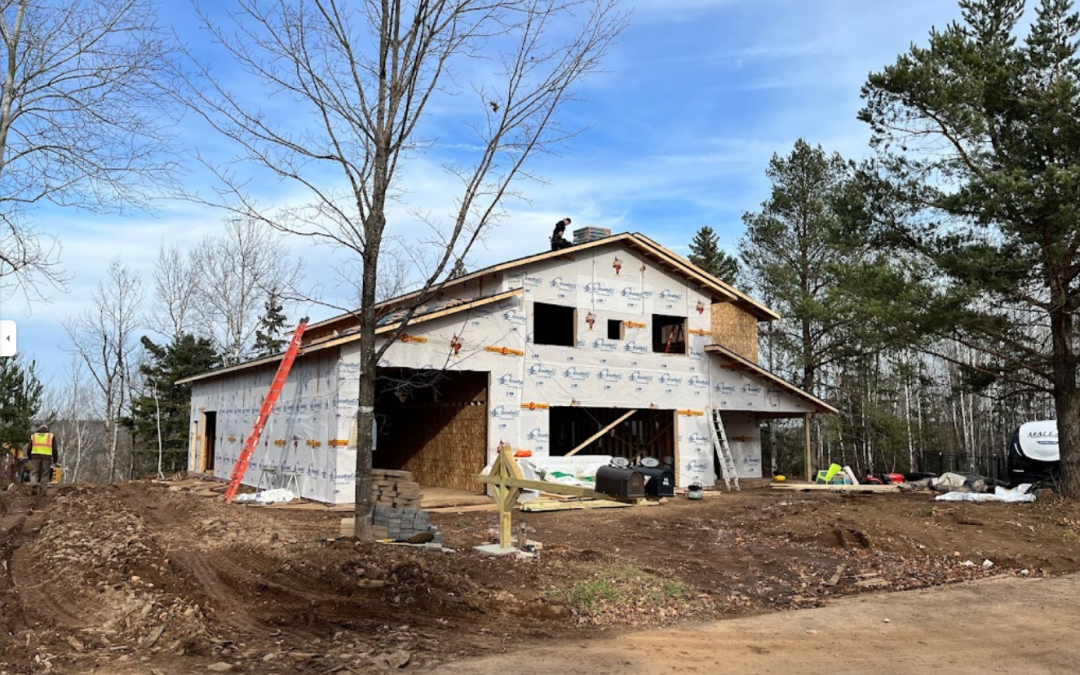Your roof plays a vital role in shielding your home from harsh weather while keeping you safe. That’s why selecting the right contractor is paramount when planning a replacement. This guide outlines the key questions you should ask so you can decide with confidence—especially if you’re weighing repair against complete replacement. In fact, as you explore your options, consider this in-depth look at repair versus replacement options to further clarify the differences.
Table of Contents
- What Is Your Legal Company Name and Address?
- How Long Has Your Company Been in Business?
- Are You Properly Licensed?
- Do You Carry Insurance and Can You Provide Proof?
- Can You Provide Written Estimates or Proposals?
- Do You Offer a Warranty on Your Workmanship?
- Can You Provide References from Recent Roofing Clients?
- What Specific Roofing Materials Do You Recommend and Why?
- What Is Your Installation Process, Including How You Handle Permits and Inspections?
- What Is Your Plan for Unforeseen Problems or Emergency Roof Repairs?
- Taking Control of Your Roofing Decision
- Conclusion
- About the Author
Roofing Contractor Questions Summary
| Question | Key Focus |
| Legal Company Name & Address | Verify credentials and contact details. |
| Company Experience | Years in business and expertise. |
| Properly Licensed | Valid licenses ensuring regulatory compliance. |
| Insurance Proof | Protection against on-site accidents. |
| Written Estimates | Detailed scope and cost breakdown. |
| Warranty on Workmanship | Assurance on quality and future issues. |
| References | Feedback from previous clients. |
| Roofing Materials | Material recommendations and suitability. |
| Installation Process | Step-by-step procedural clarity. |
| Plan for Unforeseen Problems | Emergency repair strategies. |
1. What Is Your Legal Company Name and Address?
It might seem straightforward to ask for a company’s legal name and address, yet verifying this information is crucial. Confirming that the business has a full legal name, a physical location, and a working phone number means you have a reliable point of contact should issues arise with the job. This extra check is invaluable later when you need to rely on a warranty or address any discrepancies. In fact, trusted contractor credential insights emphasize the importance of gathering these details early on to help avert scams or substandard providers.
2. How Long Has Your Company Been in Business?
Experience is a critical factor in roofing projects. Contractors that have been around for many years bring a wealth of knowledge to the table, handling a variety of roofing issues while understanding local building codes and weather challenges in Roofing, USA. Their extensive background generally translates to better roof installations capable of withstanding storms, heavy snow, and strong winds. For a deeper perspective on roof durability, consider our detailed look at roof durability to further guide your decision.
3. Are You Properly Licensed?
Ensuring that a contractor is properly licensed is an essential inquiry. A valid license confirms that the contractor has met all necessary training and adheres to safety rules, which is vital in a potentially hazardous roofing environment. It also means their credentials have been verified by local authorities. With that in mind, expert commentary on licensing standards offers valuable context on why this verification is so important.
4. Do You Carry Insurance and Can You Provide Proof?
Roofing projects inherently involve risks—from working at significant heights to handling heavy materials. It is essential that your chosen contractor carries proper insurance, covering both liability and worker’s compensation. This documentation protects you should any mishaps occur on your property. If a contractor is hesitant to provide this proof, it may be a red flag. In this context, key insights on insurance coverage underscore that dependable professionals are always forthcoming with their credentials.
5. Can You Provide Written Estimates or Proposals?
A reputable roofing contractor will present a written estimate that details the full scope of work, including materials, costs, and the timeline for completion. This document not only sets clear expectations but also helps protect you from unforeseen charges. Having every detail in writing is a smart way to ensure transparency throughout the project. To dive deeper into the benefits of documented proposals, practical strategies for transparent estimates provide further guidance.
6. Do You Offer a Warranty on Your Workmanship?
A warranty on workmanship signals that the contractor is confident in the longevity of their work. This promise covers any potential errors or issues that arise after the project is completed. Be sure to discuss the terms, including duration and coverage specifics, so you are fully protected. It’s a detail that seasoned homeowners never overlook—after all, vetted recommendations on roofing protection stress that a clear warranty is key to long-term satisfaction.
7. Can You Provide References from Recent Roofing Clients?
Requesting references from recent clients is a wise step when vetting a roofing contractor. A company confident in its work will happily share examples of past projects, allowing you to check on quality and consistency firsthand. When you speak with former customers, inquire about their overall satisfaction and any challenges encountered along the way. In fact, beneficial feedback verification tips can further guide you in assessing a contractor’s reliability.
8. What Specific Roofing Materials Do You Recommend and Why?

Photo by Alex Moliski on Pexels
Your roofing contractor should be well-informed about a variety of materials and their suitability for your home’s climate and architecture. They should clearly explain which options they recommend based on durability, performance, and local weather conditions. For homeowners keen to understand the advantages of various materials, expert guidance on material choices offers thoughtful insights into making the right selection.
9. What Is Your Installation Process, Including How You Handle Permits and Inspections?
A seasoned roofing contractor will detail a methodical installation process—from initial assessments and permit handling to final inspections and cleanup. Understanding each phase helps ensure that the project adheres to building codes and safety regulations. For a clearer picture of these carefully planned steps, consider comprehensive installation process advice that outlines the entire procedure.
10. What Is Your Plan for Unforeseen Problems or Emergency Roof Repairs?
Even the most carefully planned roofing projects can encounter unforeseen problems such as hidden damages or unexpected complications. It is important to know how your contractor will manage these surprises, including how additional costs will be addressed and who will be responsible for extra repairs. Clear contractual clauses can prevent future confusion. Moreover, with emerging technologies like drones and AI beginning to influence roof inspections, you can see how cutting-edge tech transforms roof care to provide added reassurance.
Taking Control of Your Roofing Decision
Deciding whether to repair or replace your roof is a significant undertaking. With many factors to weigh, these 10 key questions empower you to select a contractor who is both experienced and reliable. This proactive approach ensures that your needs are heard and your project is managed with clarity and precision.
Each inquiry is designed to deepen your understanding of the contractor’s expertise while protecting your investment by setting clear expectations. A well-documented proposal not only tracks the project’s progress but also serves as a roadmap in the event of unexpected issues.
Many homeowners in Roofing, USA have experienced success by thoroughly vetting their contractors. One recent case involved a contractor with over 20 years in the field, complete with a verifiable office, detailed written estimates, robust insurance, and glowing references. Even when unexpected challenges arose, their pre-planned strategy for extra repairs made all the difference. Reflecting modern innovations such as self-healing materials and kinetic designs, you can discover more about emerging approaches by exploring pioneering roof replacement strategies that are setting new industry standards.

Photo by Curtis Adams on Pexels
Conclusion
In summary, investing in your roof is an investment in your home’s future. Your roof defends against the elements, and by asking these critical questions, you ensure that you partner with a contractor who not only meets but often exceeds expectations. A well-informed decision today safeguards both your home and your finances for years to come.
For a deeper dive into the early warning signs that indicate a roof may need replacement, consider our timely checklist for noticing roof issues. Additionally, to broaden your understanding of home improvement trends, explore our wider range of expert resources available for all your renovation needs.



